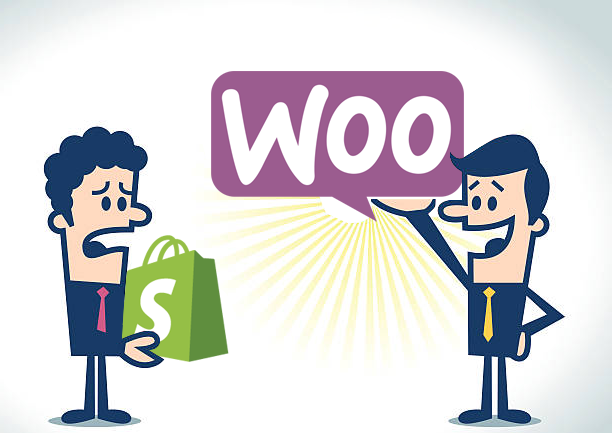Why WooCommerce is Better Than Shopify
One of the biggest decisions online retailers face when building a web store is which eCommerce platform they should use to sell their products or services. Shopify and WooCommerce are the two most popular options, but which is best for you? There are a number of factors to consider, such as: Which will deliver the best shopping experience? Does one provide more features than the other? How do the two platforms compare in price? For the majority of sellers, WooCommerce is the superior choice – find out why here.
A Variety of Plugins & Product Add-Ons
For sellers with unique needs, one of the simplest and most powerful decision-making factors is the need for specific features. Retailers selling products with fine details, for instance, can benefit from WooCommerce Image Zoom. The Bulk Discount plugin, as its name suggest, gives shoppers the power to save when they purchase more of your goods. The list of available plugins and product add-ons goes on and on; there are hundreds of WooCommerce extensions available (many of which are free).
In fact, no matter how you plan to customize your shopping experience, you can rest assured there’s a WooCommerce plugin available to support it. From accommodating multilingual site visitors to granting shoppers the ability to save items to a wish list, the possibilities for customizing your eCommerce store are endless. It is known as the platform that offers greater flexibility than any other option available.
See also: 18 Best WooCommerce Extensions

Customizable WooCommerce Checkout
Not only does WooCommerce outpace its competitor in terms of features; it also provides the ability to tailor the checkout process according to your shoppers’ unique needs. This is critically important, considering the fact that the shopping cart abandonment rate is a whopping 69%!
More: The Best Abandon Shopping Cart Strategy To Maximize Sales
In order to contend with other online retailers (including online marketplace conglomerates), independent eCommerce sellers need to streamline the checkout process to support ease and speed. WooCommerce has standard built-in features, such as the ability to accept payments via PayPal and Stripe, as well as adjustable tax and shipping rates. To further support an efficient checkout process, WooCommerce also offers options like the use of multiple coupons and guest checkout. Free plugins are also available to support a multitude of payment gateways, along with other ways to customize and simplify checkout.
Also check this: 7 Ways to Improve eCommerce Checkout Conversion Rates
Competitive Pricing to Support Your Budget
Most eCommerce retailers don’t have unlimited funds to devote to their store. In fact, the majority of sellers are seeking the greatest possible return on investment to help their business grow. Whether your business is brand-new or you’re selling your products online for the first time, you’re probably searching for a platform that will help you get the most from your budget.
The price factor is one aspect that tends to be a bit confusing for store owners who are just starting out. That’s because while use of the platforms themselves is actually free, you’ll also need to consider the potential costs of web hosting, a domain name, themes, and premium plugins. You’ll also pay transaction fees from certain payment gateways, but only when a sale is made.
WooCommerce has long been hailed as the more affordable platform compared to others. With hosting providers such as Bluehost, WooCommerce retailers can receive a free domain name, SSL certificate, and web hosting for as little as $6.95/month. Basic Shopify plans, on the other hand, start at $29/month. Also, while there are many paid themes and plugins available for WooCommerce, it’s easy to find free versions with similar functions or features.
See also: 7 Most Important Factors in Building an eCommerce Site
A Greater Level of Control Over Your Store
Anyone seeking the utmost level of control over their store will find it with WooCommerce. Shopify has been called the “tour guide” of ecommerce; whereas using WooCommerce is like exploring a new destination independently. While the former does allow you to get a site up and running quickly and with minimal effort, WooCommerce gives you the reigns, allowing you to take control over the options that matter most to your business’s success. You can enhance your site with countless design options (free or premium), leverage SEO to your advantage, and optimize the functionality of your store.
The Unmatched Power of WordPress
Lastly, one obvious advantage of WooCommerce is the fact that it is a plugin for WordPress – the platform that runs almost a third of all websites (30.8%)! WordPress is known for its ease of use, built-in blog, 100% customizable website design, and search engine success rates. The power of WordPress is simply unmatched, and WooCommerce is the best way to for sellers to harness it.
In short, both Shopify and WooCommerce are strong platforms for building eCommerce stores. Yet, for sellers who are aiming for the most budget-friendly option to provide a superb shopping experience, WooCommerce is the clear winner. For more tips on how to maximize the impact of your eCommerce store, be sure to check back with us soon!

